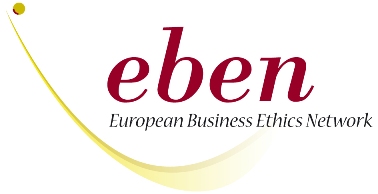Do we research the right things?
 The amount of academic research being conducted and published on business ethics has expanded greatly. I believe this is a good thing. However, such is the importance of business and the ethical challenges that it faces, our work as academics will never be done. There will always be a need for further research – of course! In fact, impressive though the advances have been, the business ethics scholarly community is still small compared to many cognate areas, whether they be academic disciplines (such as economics) or particular fields within management (such as marketing). Our capacity is still very limited when set against what needs to be done, so we need to be wise about how we allocate our scarce resources. A piece of research might be of some value, but does it come at a high opportunity cost?
The amount of academic research being conducted and published on business ethics has expanded greatly. I believe this is a good thing. However, such is the importance of business and the ethical challenges that it faces, our work as academics will never be done. There will always be a need for further research – of course! In fact, impressive though the advances have been, the business ethics scholarly community is still small compared to many cognate areas, whether they be academic disciplines (such as economics) or particular fields within management (such as marketing). Our capacity is still very limited when set against what needs to be done, so we need to be wise about how we allocate our scarce resources. A piece of research might be of some value, but does it come at a high opportunity cost?
Indeed, when I reflect on what is published, I worry about where we focus our efforts. To pick one example, why was there so little research on the ethics of finance before 2007? Surely finance was not considered unimportant or believed to entail no ethical issues. (If that was the case, I don’t think many people hold that view now.)
I don’t want to attempt to explain why, as an academic community, we had a blind spot regarding the ethics of finance. Nor do I wish to attempt to list all the topics and issues that I think we should be researching. Rather, I would like to take a step back and identify some of the factors that can influence our choice of research focus and highlight some of the risks if a particular factor becomes too dominant.
So what might those influences be? As researchers, many of our strongest influences are academic. One of the most obvious, familiar to any PhD student, is previous literature. It is important to be aware of what has been written before, and authors often make suggestions for further research at the end of their papers. Yet if we take cues exclusively from previous research, we risk moving in ever-decreasing circles, writing “footnotes to footnotes”, of interest only to the protagonists involved in that particular conversation.
Many of us also look to other academic disciplines, where developments can influence our research. A good example from philosophy is the revival of virtue ethics, which has now been profitably taken up in business ethics. However, although developments in academic disciplines might suggest fruitful avenues, they are probably more important for how we do our research – the ways in which we look at and investigate the world – than for what we actually research.
Still other business ethicists might look to developments in business and management research, which itself is subject to influence by academic disciplines. Such research is likely to provide stronger cues for the content of our research than might academic disciplines themselves. Indeed, it might be particularly pertinent for business ethicists to subject new topics to ethical scrutiny as they develop. Not only would this help ethical aspects to enter the debates early on, but addressing fashionable areas might open up opportunities for ethics in the classroom as teachers look for material to help them cover new topics.
This brings me to my fourth academic influence: the curriculum. What we teach in the classroom, including subjects other than business ethics (I was a Professor of Accounting until recently), can prompt ideas about research that we could undertake. Given the importance of integrating ethics into the curriculum and the huge numbers of students who study mainstream business and management subjects, research that is easily related to the curriculum is of immense potential value.
Finally, much research is influenced by the resources available, such as datasets and research tools. This can lead to a position where what is researched is what is possible, or even easy, to do, rather than what is important. I confess that I sometimes have this feeling, for example, when I contemplate what a large proportion of research on socially responsible investment is concerned with its financial performance.
So far I have only been considering academic influences, but we are talking about business ethics and that prompts the question of what sort of influence the world outside the academy should have on our research; “more than it does at present”, would be a common response. This is part of a more general debate that is very familiar in the world of business schools.
One source of ideas for what we should research is managers themselves, perhaps systematically through surveys or more anecdotally through contacts we have. However, we should be influenced not just by the concerns of business but also by concerns about business, whether those emanate from stakeholder groups or from a more holistic societal or ecological perspective.
I am sure that readers of this piece (if any have got this far!) can expand on my list and provide richer insights into the particular factors I have identified. However, my aim will have been achieved if you reflect upon the influences to which your own choices of research project are subject and use that process of reflection to check whether your research priorities should be confirmed or realigned. What factors lead you to research what you research? Are some stronger or weaker than they should be? And how might they work together to produce a research agenda in which you can take pride – not (just) for how well the research is conducted or how prestigious is the journal you publish in, but because it addresses questions that matter.
Of course, the influences I’ve identified don’t affect us directly and unambiguously; they are filtered in all sorts of ways. This will be the case in any academic field. However, as business ethicists, perhaps we should be particularly aware of having an obligation to think carefully about what we should research. I hope you agree and find these few thoughts helpful. However, if no reader does find this piece helpful, I realise that I am impaled upon my own analysis; I should have devoted my time to something of more value! However, I live in hope that this is not the case.
If you are interested in what I have written here, you might like to look at the following two pieces:
- Cowton, C.J. (2008), ‘On setting the agenda for business ethics research’, in C. Cowton & M. Haase (Eds), Trends in Business and Economic Ethics (Berlin: Springer) 11-30.
- Campbell, D. & C.J. Cowton (2015), ‘Method issues in business ethics research: finding credible answers to questions that matter’, Business Ethics: A European Review, 24 (S1) S3-S10.
Christopher J. Cowton was, from 1996, Professor of Accounting and then, from 2008, also Dean of the Business School at the University of Huddersfield. He recently stepped down as Dean, taking the title of Professor of Financial Ethics. He may be contacted at c.j.cowton@hud.ac.uk.
